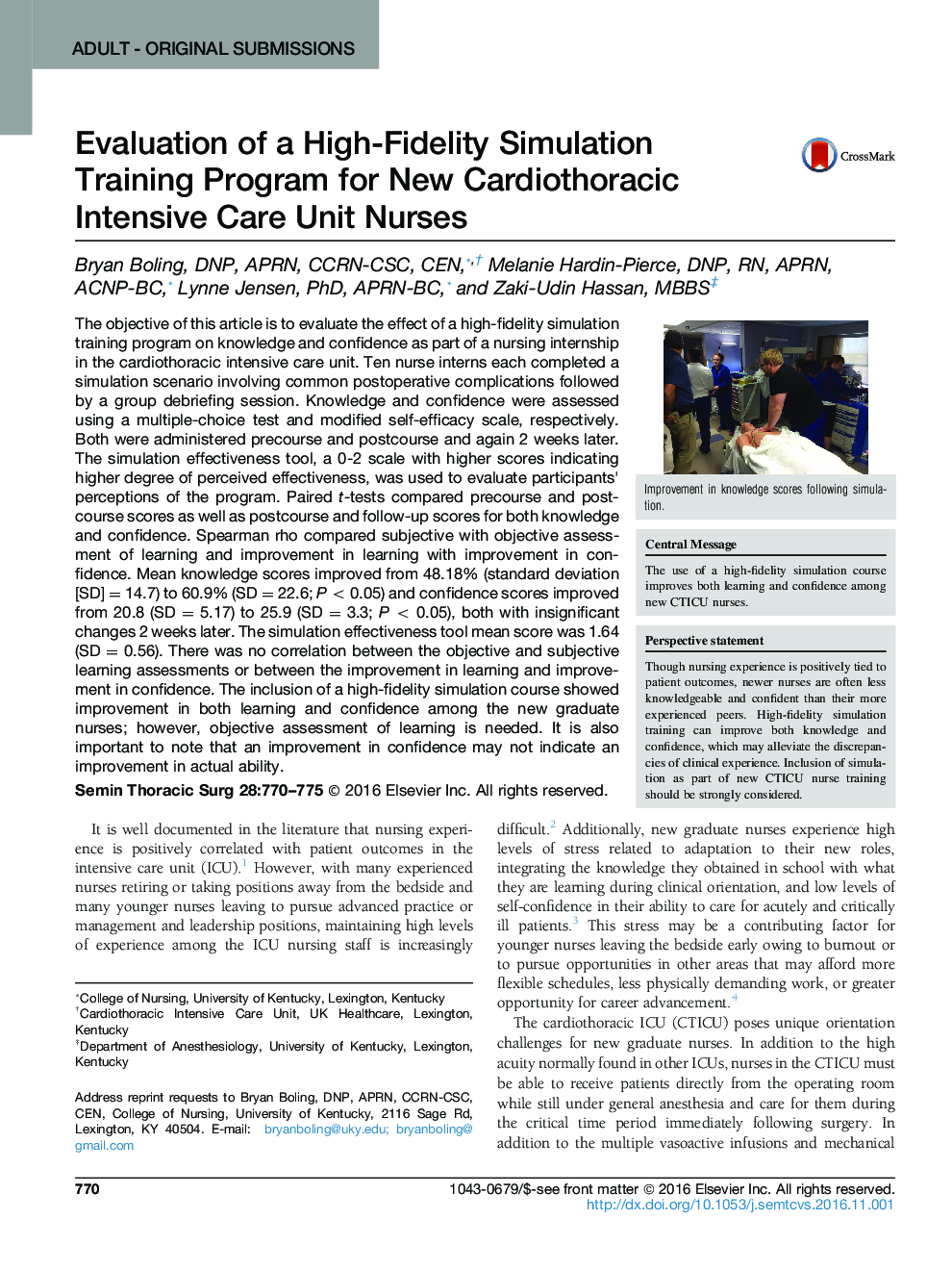| Article ID | Journal | Published Year | Pages | File Type |
|---|---|---|---|---|
| 5621599 | Seminars in Thoracic and Cardiovascular Surgery | 2016 | 6 Pages |
The objective of this article is to evaluate the effect of a high-fidelity simulation training program on knowledge and confidence as part of a nursing internship in the cardiothoracic intensive care unit. Ten nurse interns each completed a simulation scenario involving common postoperative complications followed by a group debriefing session. Knowledge and confidence were assessed using a multiple-choice test and modified self-efficacy scale, respectively. Both were administered precourse and postcourse and again 2 weeks later. The simulation effectiveness tool, a 0-2 scale with higher scores indicating higher degree of perceived effectiveness, was used to evaluate participants׳ perceptions of the program. Paired t-tests compared precourse and postcourse scores as well as postcourse and follow-up scores for both knowledge and confidence. Spearman rho compared subjective with objective assessment of learning and improvement in learning with improvement in confidence. Mean knowledge scores improved from 48.18% (standard deviation [SD] = 14.7) to 60.9% (SD = 22.6; P < 0.05) and confidence scores improved from 20.8 (SD = 5.17) to 25.9 (SD = 3.3; P < 0.05), both with insignificant changes 2 weeks later. The simulation effectiveness tool mean score was 1.64 (SD = 0.56). There was no correlation between the objective and subjective learning assessments or between the improvement in learning and improvement in confidence. The inclusion of a high-fidelity simulation course showed improvement in both learning and confidence among the new graduate nurses; however, objective assessment of learning is needed. It is also important to note that an improvement in confidence may not indicate an improvement in actual ability.
